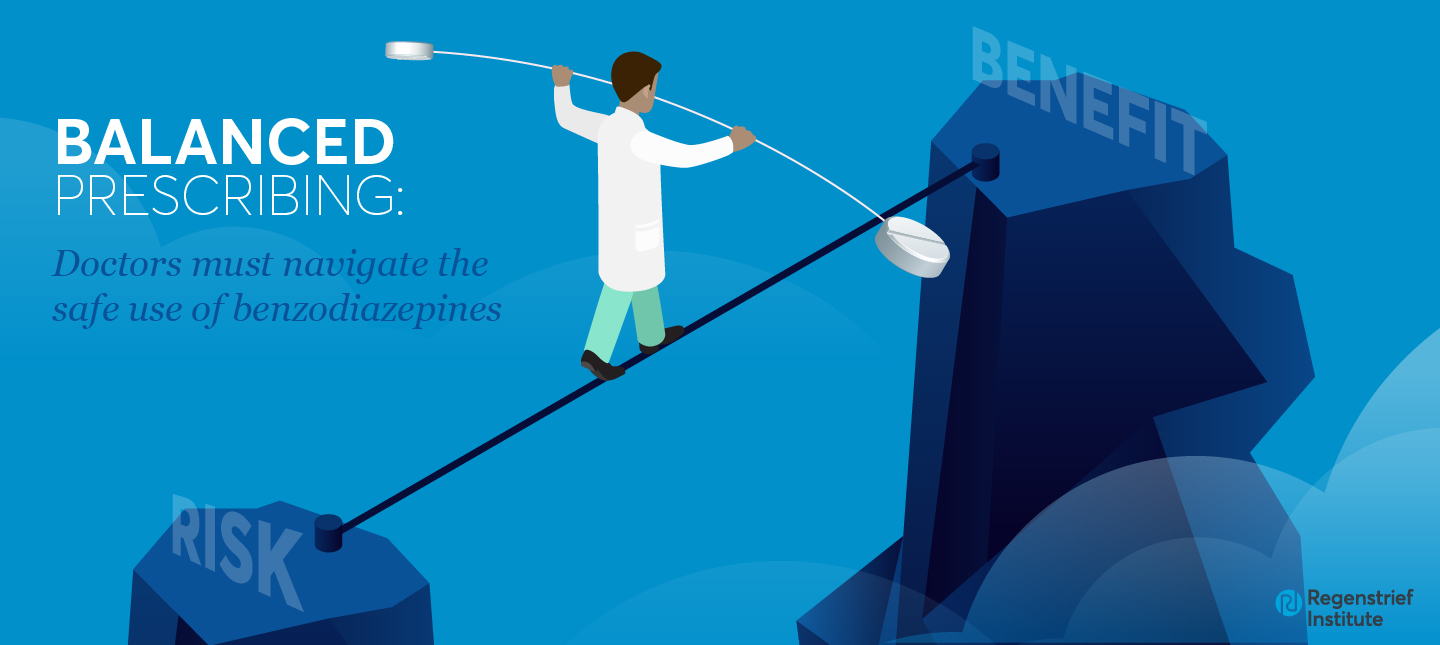Anxiety disorders are among the most common and pervasive mental illnesses in the United States. Antidepressants and psychotherapy typically are the preferred treatment options, although benzodiazepines can be helpful in treating acute or persistent anxiety that does not respond to first-line therapy. Kurt Kroenke, M.D., of the Regenstrief Institute and Indiana University School of Medicine, and Matthew E. Hirschtritt, M.D., M.P.H., of Kaiser Permanente Northern California and University of California, San Francisco, advocate a multipronged strategy for the cautious prescribing of this class of anxiety medications rather than a stringent and exclusively regulatory approach to their use.
Noting that the number of benzodiazepine prescriptions in the U.S. has substantially increased over the past decade, leading to a parallel rise in rates of misuse and overdose, Dr. Kroenke and Dr. Hirschtritt counsel that to stem this disquieting tide, provider and patient education, coupled with prescribing surveillance, may be preferable to overly strict governmental regulation of benzodiazepines.
“Benzodiazepines should not be tried first or probably even second, but as with opiates which can be appropriate for acute pain at end of life or following a severe injury or major surgery, there are appropriate reasons for prescribing benzodiazepines for severe anxiety,” said Dr. Kroenke.
He is a pioneer in the field of medical symptomology and international leader in the interpretation and treatment of psychological and physical symptoms. He has co-developed brief survey measures in worldwide clinical use to track symptoms of anxiety (GAD-7); depression (PHQ-9); suicide risk (P-4); and other conditions. These tools have been translated into more than 100 languages and assist clinicians around the world in selecting treatments and evaluating their effectiveness.
In “Walking the Benzodiazepine High Wire,” published in the Open Forum section of the peer reviewed journal Psychiatric Services, a publication of The American Psychiatric Association, the authors conclude, “The tightrope between the benefits and risks of prescribing a medication that may be useful for some patients and harmful for others exists not only for controlled drugs but also for treatments such as antibiotics, which continue to be overprescribed, leading to antibiotic resistance. A multipronged strategy for BZD [benzodiazepine] use that includes ongoing education of providers, patients, and the general population; surveillance to optimize selective and appropriate use; and closer oversight of outlier prescribing patterns is preferable to a stringent and exclusively regulatory approach.”
About Kurt Kroenke, M.D.
In addition to his role as a research scientist at Regenstrief Institute, Kurt Kroenke, M.D., is also director of the Master of Science in Clinical Research program and a professor of medicine at Indiana University School of Medicine.
About Regenstrief Institute
Founded in 1969 in Indianapolis, the Regenstrief Institute is a local, national and global leader dedicated to a world where better information empowers people to end disease and realize true health. A key research partner to Indiana University, Regenstrief and its research scientists are responsible for a growing number of major healthcare innovations and studies. Examples range from the development of global health information technology standards that enable the use and interoperability of electronic health records to improving patient-physician communications, to creating models of care that inform practice and improve the lives of patients around the globe.
Sam Regenstrief, a nationally successful entrepreneur from Connersville, Indiana, founded the institute with the goal of making healthcare more efficient and accessible for everyone. His vision continues to guide the institute’s research mission.
About IU School of Medicine
IU School of Medicine is the largest medical school in the U.S. and is annually ranked among the top medical schools in the nation by U.S. News & World Report. The school offers high-quality medical education, access to leading medical research and rich campus life in nine Indiana cities, including rural and urban locations consistently recognized for livability










